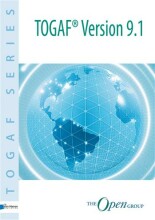Summary: Epm 2
- This + 400k other summaries
- A unique study and practice tool
- Never study anything twice again
- Get the grades you hope for
- 100% sure, 100% understanding
Read the summary and the most important questions on EPM 2
-
The European Parliament (1)
This is a preview. There are 13 more flashcards available for chapter 19/04/2020
Show more cards here -
Parliament and the European Union budget. There are two very different dimensions of EU budget-making. Define those two dimensions:
The two dimensions of EU budget-making:- MFFs > Multinational financial frameworks.
- Annual budgets.
-
Following a series of intense disputes in the early-to-mid 1980s between the Council and EP over the contents of the European Commission's annual budget, in 1988 the EP, the Commission and the Council of Ministers agreed to "The Interinstitutional Agreement on Budgetary Discipline and Improvement of the Budgetary Procedure".What commitment did the three institutions agree upon?
The three institutions agreed upon:- To a financial perspective for the years
1988 to 1992.
> The financial perspective was, essentially a medium-term financial framework for annual budgets.
- To a financial perspective for the years
-
But, overall, the Parliament has not been able to exercise as much influence on the contents of MFFs as has been sought or hoped. Why?
This has been because:- The key actors in shaping MFFs have been the Commission - which has set the broad agendas via initial and then revised proposals and:
- The governments of the member state which, in both the Council and the European Council, have contested key issues whilst giving relatively attention to EP priorities.
- The key actors in shaping MFFs have been the Commission - which has set the broad agendas via initial and then revised proposals and:
-
Name in short the three rights the EP has in relation to the EU annual budget:
The three rights:- The right to propose modifications to compulsory expenditure.
- The right to propose amendments to non-compulsory expenditure.
- The right of approval or rejection, with the Council, over the whole budget.
- The right to propose modifications to compulsory expenditure.
-
The EP's sore was removed by a Treaty.What is the name of this Treaty?
- The Treaty of Lisbon.
> Which abolished the distinction, made for full parity between the EP and Council as the budgetary authorities, and simplified the annual budgetary procedure. - The Treaty of Lisbon.
-
The EP is less able to control and supervise the Council than it is the Commission. There are the main reasons for this. Explain the main reason:
- The reason arises from the role of the Council as the main meeting place of the governments of the member states. To make it, or any of its members, directly responsible to the EP would be to introduce a measure of supranationalism into the EU that is unacceptable to member state governments.
-
If the EP is not able to call the Commission fully to account and is greatly restricted in its ability to exercise control over the Council, it is even weaker in being able to exercise any supervisory power over the European Council.Why is the EP considered even weaker in supervisory power over the European Council?
This islarge because:- Of the nature of the European Council: It is an
intergovernmental institution that islargely outside theframework of theTFEU .
> It meets normally for only between eight and twelve days years and the Heads of Government who make up most of its members not only have no great wish to ve accountable to MEPs bur can also ensure that they do not become so since it is at European Council meetings that final decisions on the contents of the treaties - which set out the main operating principles of the EU - are taken. - Of the nature of the European Council: It is an
-
The EP has a number of supervisory powers in relation to other EU bodies. Some of these bodies are of a quasi-executive nature. The most prominent of the quasi-executive bodies is the European Central Bank (ECB). What is the main power of the EP over the ECB?
The main power is:- The ECB is heard by commissions of the EP. At the request of the EP or the initiative of the ECB.
-
Who appoints the European Ombudsman?
- The European Parliament.
-
Political Parties and the European Parliament. Party political activity takes place at three main levels in relation to the EP. Define those three levels:
The three main levels were party political activity takes place:- the transnational.
- the political groups in the EP.
- the national.
- Higher grades + faster learning
- Never study anything twice
- 100% sure, 100% understanding

































